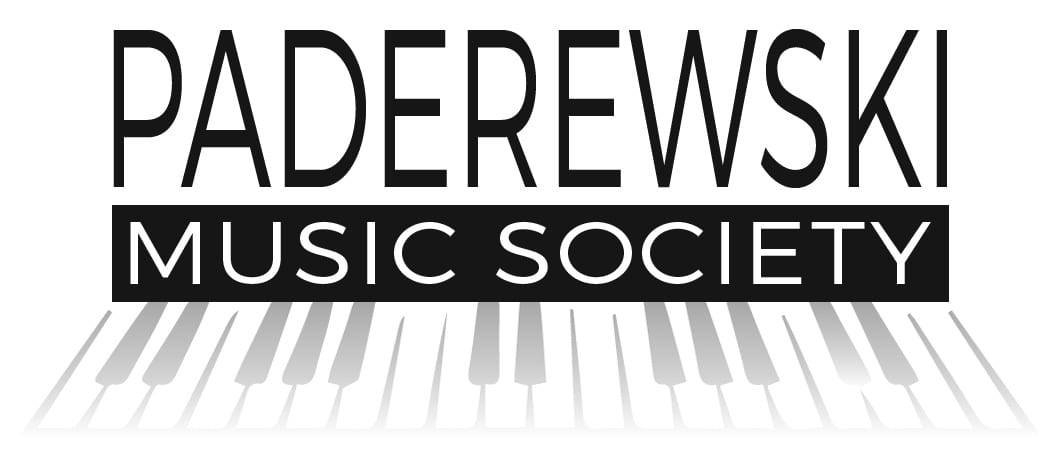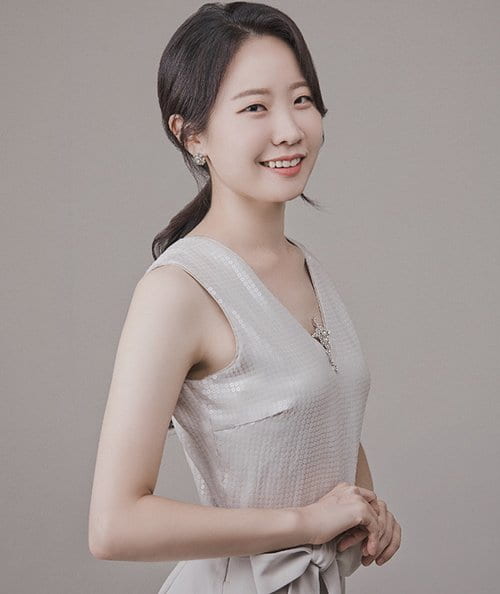Following on our earlier article on the American International Paderewski Competition in Los Angeles, we provide another behind-the-scenes look written by one of the PMC’s longtime supporters and friends. He and his wife hosted Chinese pianist Sihao Qin at their home and attended the live auditions held March 21-26 at the Loyola Marymount University’s Los Angeles campus.
The semi-final round of the Paderewski Competition featured performances by twenty-eight young pianists from all over the world. The jurors included pianists Gloria Campaner, Gloria Cheng, Wojciech Świtała, Peter Toth, Adam Wibrowski, and Wojciech Kocyan, the latter a professor at Loyola Marymount University and a non-voting Paderewski Competition Jury Chair.

The Competition was open to pianists aged 16-31 who first submitted 20-25-minute-long video recording for the preliminary round. The semi-final round was carried out live at the LMU’s Murphy Recital Hall. All competitors were required to present one work by Paderewski (the choices included Op. 9 nos. 1 & 6, Op. 14 nos. 5 & 6, and Op. 16 nos. 1 & 4), with the remaining portion of a 25-minute repertoire segment left to the contestant’s choice. This stage of the Competition took three consecutive days, March 21, 22 and 23, with individual performances scheduled between 1 and 7 p.m.
Capped at 50-55 minutes, the final round of the Competition also left the young pianists to select their repertoire, with the proviso that none of the works presented in previous rounds were allowed. All finalists were heard on Friday, March 25 starting at 11 a.m. and going well into the evening hours.
The Winners’ Concert took place on Saturday, March 26 at 5 p.m. and was followed by a reception. The Competition prizes ($10,000, $5,000 and $2500) also included a Special Prize appearance at New York City’s Lincoln Center, a $1000 prize for the best performance of a work by Paderewski, as well as concert engagements in Paris, Kraków, Bydgoszcz, and Los Angeles.
Here are excerpts from the diary of the family hosting Sihao Qin:
Today was the second of three days of semifinals. Sihao got the second audition slot […] His first piece was the Scriabin Fantaisie in B minor Op. 28. A search through the program shows that one of the judges won a prize for a recording of, among others, Scriabin. Another judge is a founding member of the Scriabin Society. Of the 32 competitors, 11 are playing something by Scriabin, 4 of them the Fantaisie. So, if one can ace the Scriabin one has a good chance to make the finals.
Sihao played it very well. I am far from an expert on Scriabin, so all I can say is that he did not get muddy and over-pedaled in the fff parts and the melody lines were clear and quite romantic when the volume went down. And the playing was at a virtuoso level. All the competitors I have heard are technically very talented, and this was no exception.
His middle piece was the Paderewski Legend in A-flat major, Op. 16 No. 1. Since a Paderewski piece is required, there are nine competitors playing it. He played it with great sensitivity; it’s a beautiful composition in the style of a Chopin Nocturne: legato, allegro con fuoco, legato con sospiri.
And thank goodness we had a piece like that in the middle, because Sihao’s closer was Ravel’s La Valse. Many interpretations of Ravel’s intent are available to you on Google, but one thing is certain: it may be a tribute to Vienna and Johann Strauss, but is definitely not in the style of Strauss. You are more likely to be reminded of Richard Strauss’ opera Elektra than the Beautiful Blue Danube [by the other Strauss, Johann]. Ravel himself said, “It is a dancing, whirling, almost hallucinatory ecstasy, an increasingly passionate and exhausting whirlwind of dancers, who are overcome and exhilarated by nothing but the waltz.”
Sihao played it brilliantly, moving us from the deep rumble of a waltz at the start, to beautiful melodies, and then to the “passionate and exhausting” finale. It is, I am told, a most difficult piece because of the syncopations and long awkward leaps required. Somehow, he managed to bring it all off. I spoke with one of the competition organizers and she said he was “fabulous.” I hope the judges agree. It’s a crowded field.
And then home, where Sihao wanted nothing more than water and a place to rest. Tomorrow he said he might want to see one of the other competitors that he is sure will make the finals: Andrzej Wierciński from Poland, who made it to the 3rd round in the 2021 Chopin Competition. His scheduled time is 3:20 PDT tomorrow (Wednesday) on the YouTube stream.
The Final Round
Our inside look into the Competition continues:
Bad news for us. Sihao did not make the final [round], but he seemed less upset than we were. The next day the competitors were offered a trip to the Getty Museum and 10 of the 20 who did not make the finals attended. Although the museum was appreciated, it seemed that the competitors wanted to talk with each other even more. They started to arrange their own side trips at lunch—it will be interesting to find out what they want to do.
So today (Friday) we attended the final competition round as much as we could and were able to see five of the eight competitors. It was a grueling day for the judges—8 one-hour performances in 9 1/2 hours. Inside word is that the sandwich order for them was doubled early in the day. I am told that there are specific criteria for grading the performances, but you wouldn’t know it watching how they take notes. Judges 1 and 2 and 3 mostly listened and made occasional notes. Judge 4 made frequent meticulous tiny notations on what appeared to be a pre-printed form before going to ‘normal’ written notes. Judge 5 made copious notes on a lined yellow legal pad AND for one competitor used one of those notepad computers for music to follow the score. Judge 6 occasionally played an air piano in sympathy with the competitor and made notes on the program as well as on note paper.
Yanfeng Bai played a Bach Prelude and Fugue as interpreted [transcribed] by Liszt and the Scriabin Etudes Opus 8 with the appropriate amounts of virtuosity. But he also played Debussy’s Images Book 1 and to this listener it was sublime. Mr. Bai put three more images up on the wall at the Getty with the Manets and Monets.
Ryota Yamazaki played the Liszt Ballade No. 2 (a lot of Liszt, one way or another, from the field) and all 24 Chopin Preludes. Liszt not being my cup of tea all I can say is that he played it well, technically, but I can’t assess the musicality. The Chopin was masterful.
Arsenii Mun played Beethoven’s Sonata No. 31, Rachmaninoff’s Etude-Tableau Opus 33 No. 8 and Chopin’s 3rd Sonata. It was one of the better-rounded selections and he played each one very well.
Andrzej Wierciński played the Rachmaninoff Corelli Variations (demonically), Chopin’s 4th Ballade (lyrically), Schubert/Liszt Auf der Fest Aller Seelen (beautifully), and Prokofiev’s Sonata No. 7 “Stalingrad” (brutally, as should be).
Soyeon An did a bit of counter-programming. She started with Bach’s Italian Concerto, one of only two pieces in the finals written before 1800. It was very fast; her articulation was excellent. Next she played Brahms’ 3rd Sonata – the only Brahms in the finals. Lots of sound and fury. Finally, like an after-dinner mint, a rippling-waters arrangement of Gershwin’s Embraceable You. Very refreshing. I wonder what the judges will make of it.
And now [at 11 p.m.] the results are in. First Place: YOUNG SUN CHOI. Second Place: ALEXANDER AGATE. Third Place: ANDRZEJ WIERCIŃSKI. I did not hear the first two; they must have been sensational.
Congratulations to the winners, organizers at the Paderewski Music Society and also to all participants in the 2022 American International Paderewski Piano Competition. Clearly, a lot of fine performances were heard during this pianistic extravaganza. A local news article about the Competition can be found at: spectrumnews1.com. For more information about the events, contestants and their individual programs for the Second and Final rounds, see: paderewskimusicsociety.org/aippc2022digitalprogrambook
[Sources: email communications, paderewskimusicsociety.org]
